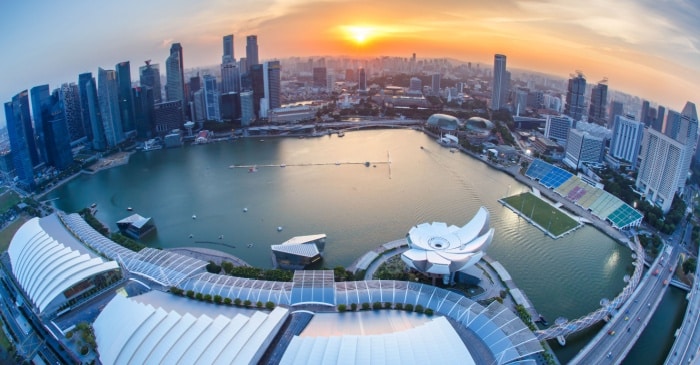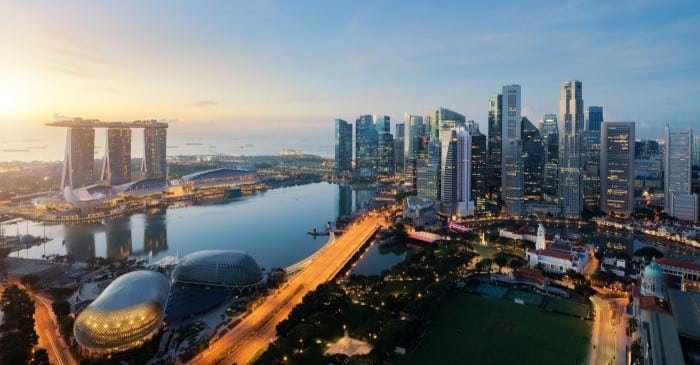
Sandpiper Opens in Dubai

Is Asia Pacific on Track to Achieve the SDG 3?
Mastering Public Affairs and Government Relations: Singapore
March 2024

This article is part of Sandpiper’s Public Affairs Tracker content series on government relations in Asia-Pacific. Our Public Affairs team provides in-depth monitoring and analysis on emerging political and macroeconomic issues, helping companies formulate appropriate strategies for challenging business environments. Click here to explore other recently published articles.
Singapore’s efficient governance
Singapore’s political stability, coupled with its transparent legal system, pragmatic approach to economic management, highly skilled workforce, and business friendliness have made it a regional powerhouse in Southeast Asia and a leading global hub for trade, finance, and logistics. The country’s strategic location has also been leveraged to make it into one of the world’s busiest ports, underpinning its status as a critical node in global supply chains.
Singapore’s economic policies are characterised by an openness to global trade and investment. The government has implemented pro-business policies, maintaining one of the world’s lowest corporate tax rates and fostering an environment conducive to innovation and entrepreneurship. The unique combination of transparency, long-term planning, careful analysis, and consideration of feedback from its citizens and businesses continues to propel Singapore to success.
Singapore’s political landscape
Since gaining independence in 1965, Singapore has evolved into a highly developed, free-market economy characterised by stable prices and high per capita GDP. It is a parliamentary republic where the role of the President is largely ceremonial, with executive power vested in the Prime Minister and the Cabinet. The People’s Action Party (PAP) has been the dominant political force since independence, steering Singapore through its transformative economic journey with strategic policy-making and robust governance.
Sustained PAP leadership has fostered a unique political environment where policies are generally long-term in orientation, emphasizing sustainability, innovation, and adaptability. This approach has enabled Singapore to maintain a competitive edge in various sectors, including finance, manufacturing, and technology.
Despite the prominence of a single party, Singapore’s political scene is not static. The government encourages active citizen participation and feedback through various channels, ensuring that the populace has a say in shaping policies. This inclusive approach helps maintain social cohesion and ensures that governance remains attuned to the needs of its citizens.
Singapore’s government also actively engages with various non-governmental stakeholders, including businesses, civil society, and academic institutions, to ensure that its policies meet the diverse needs of its society. Public-private partnerships are a cornerstone of Singapore’s development strategy, driving innovation and sustainability in sectors such as urban development, technology, and healthcare.
The government facilitates dialogue with industry through organisations like the Singapore Business Federation, Singapore International Chamber of Commerce, and various trade associations, ensuring that the business community’s voice is heard in policymaking.
Navigating public affairs in Singapore
For businesses and MNCs looking to establish strong public affairs teams in Singapore, understanding the government’s priorities and the nuances of its political and economic landscape is crucial. The emphasis on legal and regulatory compliance, coupled with the importance of maintaining high standards of corporate governance and social responsibility, cannot be overstated.
Engaging with Singapore’s decision-makers requires a nuanced approach that respects the country’s unique blend of Eastern and Western business practices. Building long-term relationships based on trust and mutual benefit is essential, as is a keen understanding of the local cultural and business etiquette. Public affairs teams in Singapore are typically dual-purpose, handling domestic and regional work across Southeast Asia.
Much of the economic policies and employment laws are focused on the middle class and supporting them. There is a huge house building initiative (HDB) that provides heavily subsidised housing to Singaporeans and permanent residents. Singaporeans also get subsidies for medicines and healthcare.
Currently, the government is very focused on inward investment and attracting highly skilled jobs, prioritising Singapore itself rather than further advancing its status as a regional hub. There is a degree of tension between balancing business friendliness and guaranteeing that such policies continue to bring benefits to the whole population. High costs of living and large differentials between those in highly paid, elite roles and the remuneration of other Singaporeans are further exacerbating this divide.
Singapore’s government is working hard to become a sustainability hub in the region through major policy initiatives such as the Singapore Green Plan 2030 and heavy investment in related sectors. These efforts were recently backed by the country’s 2024 budget, which included a Future Energy Fund with an initial injection of S$5 billion and the Enterprise Financing Scheme – Green (“EFS-Green”) which supports businesses that are reducing waste, resource use, or greenhouse gas emissions.
2024 is a particularly important time for firms to invest in strong government relations in Singapore, given the changing circumstances. In late 2023, Singapore Prime Minister Lee Hsien Loong said he plans to step down and welcome his replacement to take over, current Deputy Prime Minister Lawrence Wong, before the country’s next general election in 2025. In this manner, Wong will be positioned to receive a mandate of support in that vote. With these changes in motion, Singapore is currently in a period of transition.
In conclusion, Singapore’s distinct model of governance, characterised by efficiency, transparency, and forward-thinking policies, presents ample opportunities for businesses. However, success in this dynamic environment demands a strategic approach to government relations, an understanding of local practices, and a commitment to contributing positively to the broader societal goals.




